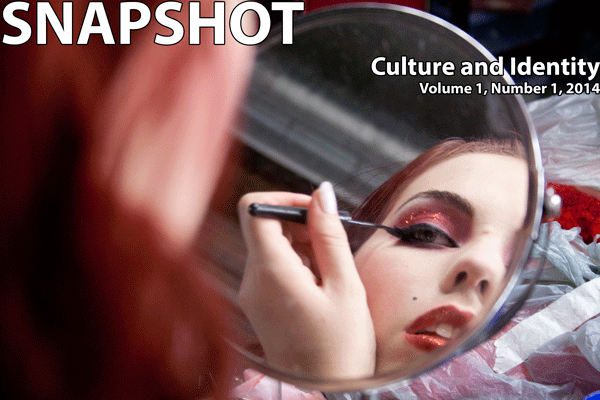Editorial
Abstract
This issue of Snapshot brings together students’ highly personal responses to four texts taught in American Literature. At La Trobe, this subject is premised around the origins of America, not only as a place, but as an idea. This second emphasis means that our examination of this literature is far less tethered to a geographic locale; rather it is expressed and contested in words, images and sound; whether from supporters or critics, who focus on the significance of American literature wherever they find it. Notions of an ‘American dream’ (or nightmare) are embedded in how people everywhere read the cultural and political environment of today. Therefore, I thought it would be fruitful (and fun!) to consider how, in exploring the story of the American dream, we might also be discovering something about ourselves.Submission terms
Words in bold are explained in the 'further information' section.
Snapshot is an open access journal published by the Faculty of Humanities and Social Sciences at La Trobe University.
By submitting your work you agree to the following submission terms. As outlined in Author Guidelines, publication is at the discretion of the editors.
Terms
1. You grant La Trobe University a perpetual, irrevocable, royalty-free, worldwide, non-exclusive licence to publish, reproduce and communicate the work in Snapshot, in any form associated with the reproduction or communication of Snapshot, and to modify the work with your approval. Subject to paragraph 6 (below), this licence includes the right for La Trobe University to make the work available to others under a Creative Commons Attribution 4.0 licence.
2. Subject to paragraph 6, you assert your right to be acknowledged as the original author of the work.
3. If you publish the work elsewhere, you agree to acknowledge in that publication that the work was first published in Snapshot.
4. You warrant to La Trobe University that:
- the work is original (your own work) and that La Trobe University's use of the work as outlined in these terms and conditions will not infringe any third-party rights; and
- the work is not defamatory.
5. You understand that these terms are a binding legal agreement, and you have either obtained independent legal advice prior to agreeing to these terms or have chosen not to obtain independent legal advice. You confirm that you have agreed to these terms of your own free will.
6. If requested by you:
- La Trobe University will make the work available to others under a Creative Commons Attribution No-Derivatives 4.0 licence instead of the Creative Commons Attribution 4.0 licence; and/or
- La Trobe University will publish your work anonymously.
Please include this request in the ‘Comments for the Editor' box below.
Further information
Open access means that:
- Snapshot is available for free to anybody;
- Snapshot's content can be shared, distributed, printed and modified according to the Creative Commons Attribution licence conditions;
- Authors retain copyright in their work;
- Authors are not paid for their contributions, nor are they required to pay to be published; and
- Journal content is housed on La Trobe University's servers, as facilitated by the library.
A non-exclusive licence means that you can enter into a non-exclusive arrangement with another publisher to publish the work, but you cannot enter into an exclusive arrangement with another publisher to publish the work.
The work means any written work, images or other material provided by you to Snapshot.
The terms of the Creative Commons Attribution 4.0 licence are further described on the Creative Commons website. However some key points are:
- anybody can share the work, without seeking permission from you; and
- anybody can adapt the work before sharing it, but they must acknowledge that you were the original author, and note what changes they made.
The terms of the Creative Commons Attribution No-Derivatives 4.0 licence are further described on the Creative Commons website. However the key difference between it and the Creative Commons Attribution 4.0 licence is that it restricts others from making changes to your work and then sharing it.
The warranty given by you that no third-party rights will be infringed means that you confirm that you have not plagiarised somebody else's work (reproduced somebody else's words, ideas or findings, or presented them as your own without acknowledging them). Plagiarism includes:
- direct copying or paraphrasing from somebody else's work without acknowledging the source;
- using facts, information and ideas derived from a source without acknowledgement; and
- producing work in collaboration with other people without acknowledging their input.
The warranty given by you that the work is not defamatory means that you confirm that the work does not contain material about a person that lowers the person's reputation in the eyes of ordinary reasonable members of the community.
For further information about these terms or how to obtain independent legal advice please contact La Trobe University's Student Union Student Legal Service.

